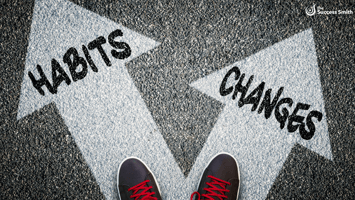Getting TO and Getting THROUGH Senior Leadership Climbing the corporate ladder often feels like a...
How to move forward when making a big decision.

'No Lose' Decision Making
Decision making is something we all grapple with, especially when faced with transformative life changes. Making the 'right' choice often leaves us paralysed with fear and doubt.
In this article I want to introduce you to the "No Lose model," a framework that can significantly ease the pressure of making decisions.
The Cycle of Worry
Most of us, when faced with a difficult decision, spend an enormous amount of time agonising over the potential pitfalls. Whether it’s about leaving a job or making a significant life change, the fear of choosing wrongly looms large. Here's what typically happens:
-
Pre-decision Worry: We get stuck in an endless loop of "What if?" scenarios.
-
What if I leave my job and end up poverty-stricken?
-
What if I can't find another job?
-
What if I'm not able to handle the change?
-
-
Post-decision Worry: Once a decision is made, the cycle doesn't stop.
-
Oh God, maybe I shouldn’t have done this.
-
What have I given up?
-
What if disaster is just around the corner?
-
This spiral of worry keeps us stuck, unable to move forward confidently. But there is an alternative approach - enter the "No Lose model."
The No Lose Model
The Core Principle
The "No Lose model" operates on a simple but powerful principle: whatever decision you make, only good things can happen. This sounds overly optimistic, but it's rooted in a mindset that emphasises growth and resilience.
A Shift in Perspective

To adopt this model, you must first agree to follow these steps:
-
Assume Positivity: Assume that no matter what choice you make, it will bring good outcomes. This doesn't mean ignoring potential challenges; it means focusing on the positive aspects of both possibilities.
-
Embrace Growth: Understand that even if things don’t go as planned, the journey will teach you valuable lessons. You will grow, become more resilient, and discover new capabilities within yourself.
Reframing Decisions
For example, consider the dilemma of leaving a job:
-
If I stay:
-
I'm in a familiar space.
-
I know the people and enjoy their company.
-
I can work on creating progression opportunities for myself.
-
-
If I leave:
-
Even if it doesn't work out, other opportunities will arise.
-
I can keep in touch with my current network.
-
I’ll have new experiences to add to my CV.
-
This mental exercise isn't about ignoring risks, but rather about deliberately choosing to highlight the positives.
Practical Steps to Implement the No Lose Model
Step 1: Make a List of Positives
Dedicatedly write out a list of positive outcomes for each decision option. This exercise can make decisions feel less overwhelming and more controllable. Here's how you could structure your list:
-
Option A:
-
Positive Outcome 1
-
Positive Outcome 2
-
...
-
-
Option B:
-
Positive Outcome 1
-
Positive Outcome 2
-
...
-
Step 2: Focus on What Matters
What we focus on is what we attract. If you focus on the positives, you'll notice more of them and this positive focus can guide your energy and actions effectively.
Step 3: Train Your Brain
It's like when you're asked to spot blue cars; suddenly, you see blue cars everywhere. Your brain is trained to focus on what you’re looking for, making other things fade into the background. Consistently practicing focus on positives trains your mind similarly.
Summary
To conquer the fear and worry that often accompany decision making, the "No Lose model" provides a powerful framework. It shifts the narrative from one of potential disasters to possibilities for growth and resilience. Remember, it's not about naively ignoring challenges but about choosing to focus on the good that each path can offer.
Feel free to share your own experiences with decision making and the strategies you use to cope with it in the comments below.
If you'd like to uncover why you're not able to achieve the transformation you wish see, you might find it helpful to take our quiz. After completion you'll receive a personalised report directly in your inbox. Take the quiz here.
.jpg?width=300&height=106&name=the-success-smith-logo-full-colour-rgb-300px@72ppi%20(2).jpg)


